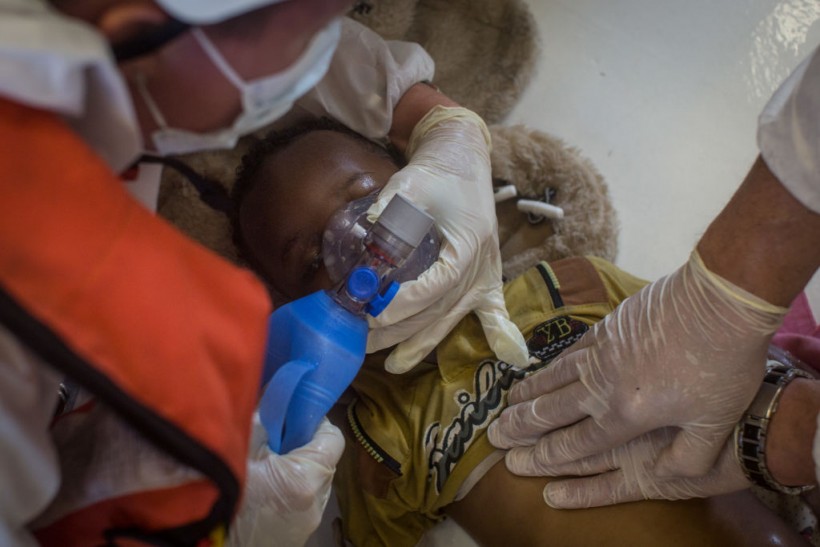A new study suggests that people are becoming less likely to give strangers in cardiac arrest a CPR because they are afraid to catch the virus, New York Post reported. The researchers made this conclusion after asking 1,300 people in 26 different countries if they are willing to help a person suffering cardiac arrest in public.
They found that people are 14% less likely to give chest compressions, and 20% fewer people that would give mouth-to-mouth resuscitation to a stranger. In Britain, that translates to three out of ten people who would not assist in saving the person in cardiac arrest.
That is an alarming rate since conducting CPR can be a matter between life and death, doubling the person's chance of survival rate outside of the hospital, the British Heart Foundation said.
Doctors urge people not to put off assisting people due to COVID-19 and insisted that getting the infection is lesser this way. Heart compressions can be done using a towel while wearing face masks, but health authorities warned people against giving mouth-to-mouth.

Search And Rescue Enters Peak Season For MOAS Operations
Read Next: WHO Endorses Protocol for Testing Herbal Medicines as COVID-19 Treatment
Decreased Bystander CPR Rates
A cardiac arrest is different from a heart attack. It is when the heart stops pumping blood, and the person stops breathing normally. In contrast, a heart attack is a blockage in the artery that supplies the heart, although sometimes cardiac arrest may cause a heart attack.
There are more than 300,000 adults in the UK, and around 350,000 in the US suffered cardiac arrest outside of the hospital every year, MailOnline reports. Their survival rate is less than 10%, and the data from Paris shows that it is even lesser during the pandemic.
But another team of researchers from New York and Seattle suggests that there has been no difference between cardiac arrest survival rates before and during the pandemic, according to their paper published in Resuscitation Plus.
On the other hand, researchers from the University of Warwick found that one in three people are less likely to perform CPR on a person in need. They compared their data from pre-COVID-19 and found that people are now 10.7% less likely to check if the person is still breathing or alive.
Moreover, people nowadays are also 19.5% less likely to give mouth-to-mouth resuscitation, and 14.3% less likely to provide chest compressions. People have also become less likely to call an ambulance compared to pre-COVID-19 which baffles scientists.
The willingness to help a friend or family member is higher but still lower than before the pandemic. Also, the respondents in the survey are 1.2% less prepared to check the breathing or pulse of their family and friend suffering from cardiac arrest. In general, people today are less likely to assist a stranger in distress.
This result is also the same on all age groups and gender but slightly different from healthcare workers who were most likely to avoid giving chest compressions. Perhaps it's because they are most informed of the possible adverse effects of COVID-19 due to their line of work which makes them hesitant at times.
READ: Iodine Solution Can Kill Coronavirus Within 15 Seconds
The Risk of Catching COVID-19 with CPR
Researchers from the University of Warwick also noted a study by the University of Michigan in which it showed that the risk of contracting the deadly infection is only 1% when giving hands-only CPR.
A contradictory result, given that standing near a person and the aerosols in their breath, could increase the chance of droplet transmission.
Out of 600 patients, less than 10% has the possibility that a cardiac arrest patient also has COVID-19, and the odds of transmitting infected droplets during cardiac compressions is 10%.
Check out more news and information on COVID-19 in Science Times.














